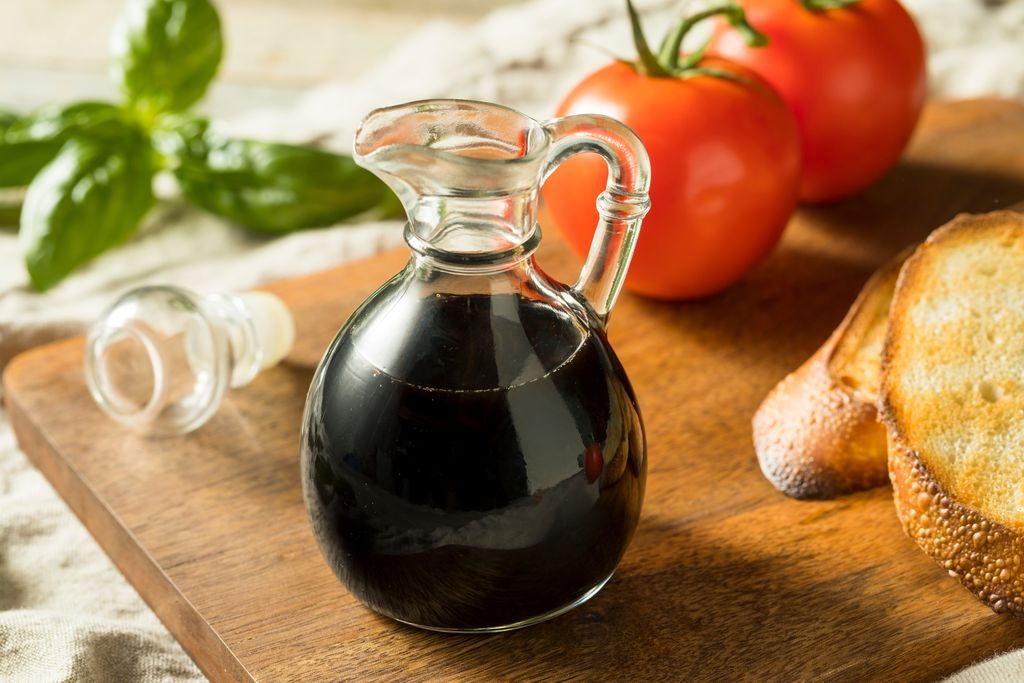Balsamic vinegar
Balsamic vinegar is a typical dressing of Italy, ideal for flavoring grilled meat, fish and vegetables, but also desserts.

Balsamic vinegar is a condiment made from cooked grape must, with a sweet and sour taste and an intense brown colour. It is produced in Emilia Romagna and is particularly typical of the areas around Modena and Reggio Emilia. There are two main types:
- Traditional Balsamic Vinegar, with a PDO denomination, in turn comprising Traditional Balsamic Vinegar of Modena PDO and Traditional Balsamic Vinegar of Reggio Emilia PDO, characterised by long ageing and use in elaborate recipes. Given the long fermentation process it undergoes, it is considered very valuable (it was once even used as a dowry at weddings!);
- Balsamic Vinegar of Modena PGI has more ingredients than PDO vinegar (including wine vinegar), a shorter ageing process and a lower price. Like other types of vinegar, it is obtained from the fermentation of grape by-products, in this case, cooked must, and is appreciated for its pungent, sweetish flavour.
There is also a product on the market that is directly derived from balsamic vinegar, namely balsamic vinegar glaze, which is obtained by cooking with sugary ingredients such as honey, spices or sugar itself. Homemade balsamic vinegar, on the other hand, is practically impossible because of the laborious process and the equipment required, as well as the ageing time which takes over ten years.
Uses of balsamic vinegar in cooking
Balsamic vinegar is a very versatile condiment. Thanks to its bitter-sweet taste, it can be used to enrich both savoury and sweet dishes. It can be used to add flavour to red meat (such as roast veal or pork) and fish cooked in a simple way, without sauces to cover the flavour, or to dress salads and grilled vegetables. And that’s not all! A drizzle of balsamic vinegar is a tasty addition to berries, strawberries or even a simple panna cotta, and for the sweet tooth even to ice cream.
Nutritional values of balsamic vinegar
Compared to other types of vinegar such as white wine vinegar and red wine vinegar, balsamic vinegar is higher in calories: 100 ml of the product contains around 88 calories. Among the beneficial properties of this food are its antioxidant action due to the polyphenols, which are present in large quantities in grapes, and the improvement of digestion as well as the facilitation of the sense of satiety.




